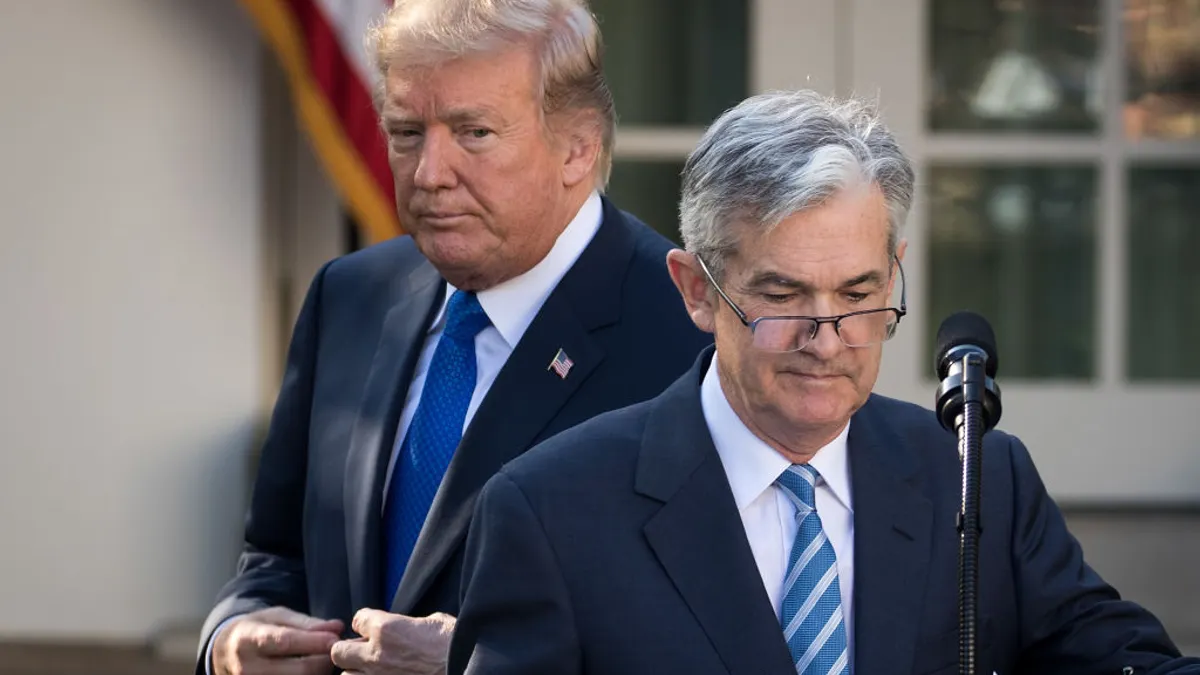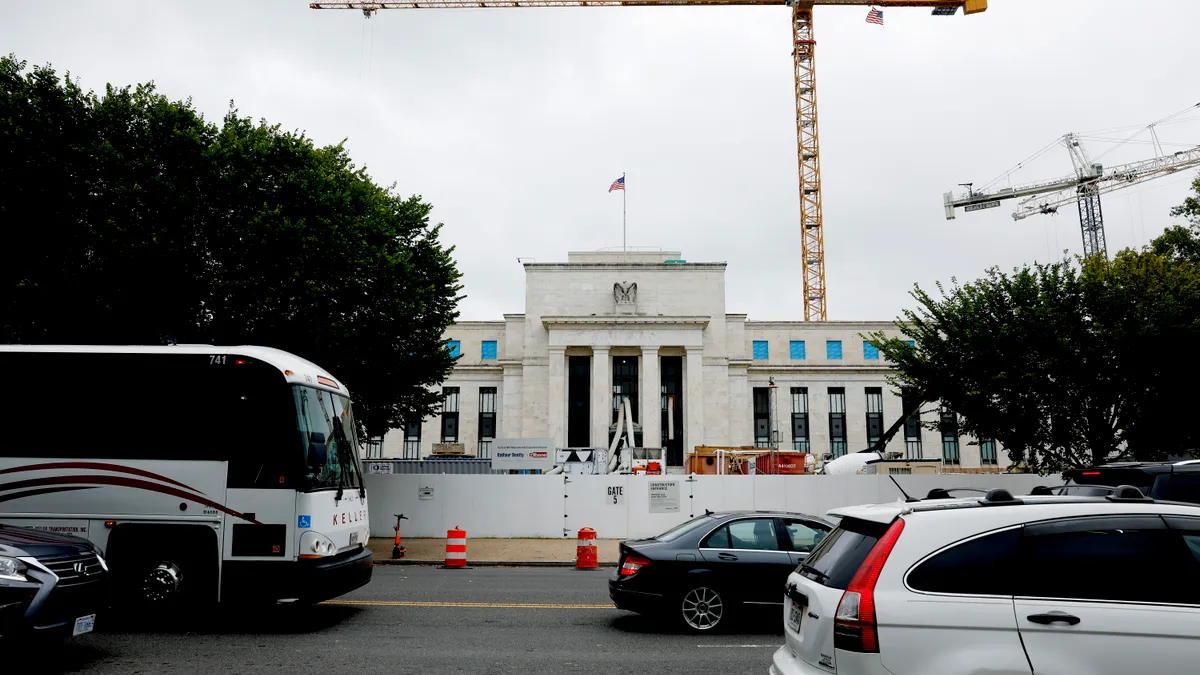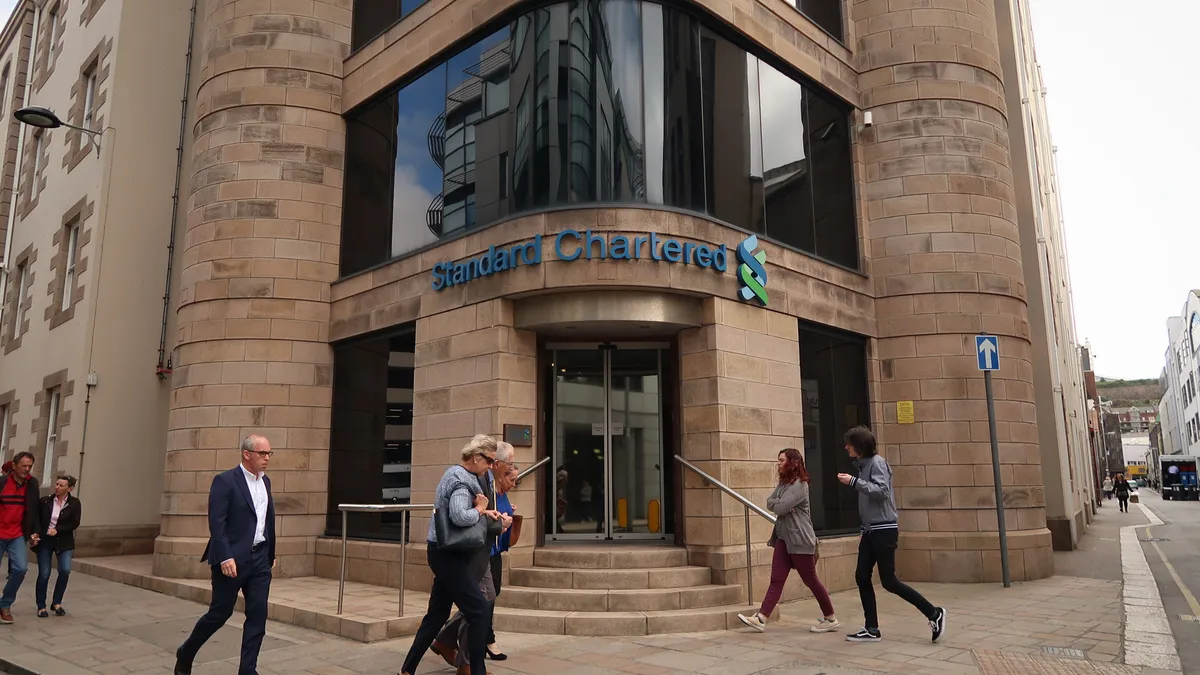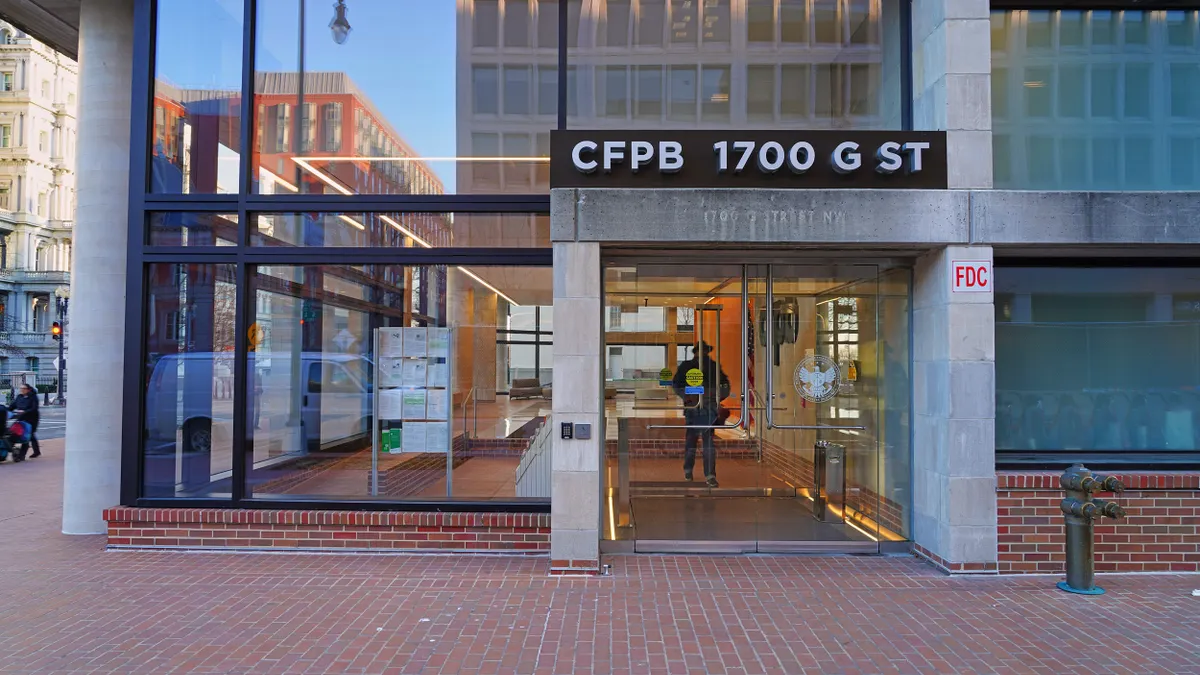Podcast-listening basketball fans may be familiar with the game of “start-bench-cut,” where observers are given three athletes’ names and must justify why they would back one player, put another in reserve, and let a third go.
In financial regulatory circles, the past week’s developments may have adopted an air of start-bench-cut.
Bench
The Consumer Financial Protection Bureau on Monday placed Frank Vespa-Papaleo, its highest-ranking fair-lending official, on administrative leave, multiple sources told both Bloomberg Law and Reuters.
Vespa-Papaleo, the assistant director of the bureau’s Office of Fair Lending and Equal Opportunity, declined to comment – but, interestingly, posted links to the Bloomberg Law and Reuters stories to his LinkedIn page Tuesday, without elaboration.
It’s unclear why Vespa-Papaleo was placed on leave – and the CFPB, for its part, didn’t immediately comment either. But the CFPB’s chief legal officer, Mark Paoletta, noted in an April memo that the bureau would no longer pursue fair lending law violations based “solely on statistical evidence and/or stray remarks that may be susceptible to adverse inferences.” It will only focus on lending law matters with “proven actual intentional racial discrimination and actual identified victims,” Paoletta said.
Roughly a week later, Vespa-Papaleo submitted a declaration to the U.S. District Court for the District of Columbia, asserting that he learned April 17 that all employees in his office, apart from himself – 14 in total – had received reduction-in-force notices and were due to lose access to work systems the next day.
“No one consulted me about the impact that these terminations would have on OFLEO's ability to fulfill its mandatory statutory duties,” Vespa-Papaleo wrote in the statement, adding that “nearly all other offices and units” with whom his office collaborates on statutorily required work “received RIF notices eliminating most of their staff.”
The declaration was filed as part of the National Treasury Employees Union’s lawsuit against the CFPB. The judge in the case ordered a temporary injunction, halting a CFPB plan to fire 1,500 of its employees, or roughly 90% of its workforce.
In his declaration, Vespa-Papaleo characterized himself as “an executive responsible for providing legal advice, strategic oversight and long-term planning, [who] manage[s] a workforce.”
“I lack the technical expertise and day-to-day knowledge required to fulfill certain [statutory] requirements,” he wrote. “And because everyone else within my office (and other offices performing aspects of the fair lending program) would have been prohibited from working beginning 6 PM on April 18, no one would have been able to train me, especially since that training, given the complexities and wide array of their expertise would take substantial time.”
Vespa-Papaleo noted that he had become “gravely concerned” that a RIF might propel the Home Mortgage Disclosure Act platform to devolve from lack of trained experts and affect the U.S. mortgage market.
But above all, “had the planned RIFs taken place, I would have been unable to complete this work on my own,” Vespa-Papaleo said.
“It certainly appears as though work within that division has slowed to a crawl and that leadership of the CFPB is not particularly interested in pursuing significant aspects of fair lending,” Jesse Van Tol, CEO of the National Community Reinvestment Coalition, told Bloomberg Law, referring to OFLEO.
Cut
The director of the Federal Reserve’s supervision and regulation division, Michael Gibson, will leave the central bank July 31 after taking a voluntary resignation offer, Bloomberg reported last week.
“I understand that leadership transitions can be a time of uncertainty,” Gibson wrote in an email to staff seen by the wire service. “However, I want to assure you that our organization is well-positioned to navigate these changes successfully. The dedication and talent of our entire staff gives me confidence that our critical work will proceed on track.”
Gibson’s division oversees big banks and administers stress tests. Mary Aiken will lead the division as acting director in Gibson’s stead, he told staff, adding that he is “working closely with Vice Chair [for Supervision Michelle] Bowman’s office and our division leadership to ensure a smooth transition.”
Looking deeper on the “cut” side, it shouldn’t be understated that President Donald Trump has his sights set on a higher-ranking figure at the Fed.
Trump, during a Cabinet meeting Tuesday, said Fed Chair Jerome Powell “should resign immediately” if he misled lawmakers when testifying last month about the extent of renovations at two of the central bank’s offices in Washington, D.C.
“There’s no VIP dining room, there’s no new marble,” Powell told the Senate Banking Committee on June 25. “There are no special elevators — there’s just, there are old elevators that have been there — there are no new water features, there’s no beehives and there’s no roof terrace gardens.”
Six Republican senators wrote Powell ahead of his testimony, asking him to justify the renovation, which was once billed at $1.9 billion but ballooned to $2.5 billion. The senators castigated the Fed for making “lavish” choices, but the central bank cited “significant increases in raw materials costs which far exceed standard cost escalations, higher labor costs and changes in construction schedule expectations.”
Trump used the point of contention Tuesday to pine – again – for a future that doesn’t include Powell.
“We should get somebody in there that’s going to lower interest rates,” Trump said at the meeting.
Trump has persistently voiced his displeasure of Powell’s reluctance to drop rates – especially around times when the Federal Open Market Committee meets to vote on them.
Start
Kevin Hassett, the director of the National Economic Council, is emerging as a candidate to succeed Powell, The Wall Street Journal reported Tuesday. He joins a field that includes longtime perceived front-runner Kevin Warsh – a former Fed governor – along with current Fed Gov. Christopher Waller. Powell’s term as chair ends in May 2026.
After Tuesday’s Cabinet meeting, Trump took to social media to champion a study by the Council of Economic Advisers that he says concluded that the president’s tariff policy has had “ZERO IMPACT on Inflation.”
“Tariffs are making our Country ‘BOOM,’” Trump wrote on Truth Social. “Someone should show this new Study to “Too Late” Jerome Powell, who has been whining like a baby about non-existent Inflation for months, and refusing to do the right thing. CUT INTEREST RATES JEROME — NOW IS THE TIME!”
Powell, for his part, wrote Senate Banking Committee Chair Tim Scott, R-SC, last week to assure that Fed officials “take seriously the responsibility to be good stewards of public resources and welcome the opportunity for further engagement on this matter.”
Fed staffers intend “to discuss the [renovation] project in further detail” with representatives from Scott’s office, Powell wrote.





















